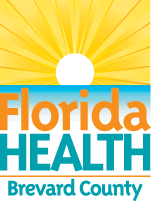It's a New Day in Public Health.
The Florida Department of Health works to protect, promote, and improve the health of all people in Florida through integrated state, county, and community efforts.
Florida Department of Health in Brevard County Urges Caution with Fish Kills
September 28, 2022

September 28, 2022
Florida Department of Health in Brevard County Urges Caution with Fish Kills
Contact:
Cynthia Leckey, EH Director
brevard.ehs@flhealth.gov
321-633-2100
Viera, FL—The Florida Department of Health in Brevard County (DOH-Brevard) urges residents to take caution with local “fish kills”, a sudden appearance of dead fish in a lake, river or pond.
Witnessing a fish kill can be startling, and while there are many reasons a fish kill can occur, most are natural causes. While some fish kills are a result of human activity, the most common causes of fish kills are changes in water quality like salinity, dissolved oxygen or temperature. Changes in water quality are often due to natural events like heavy rainfall, lake turnover or algal blooms. Increase in fish kills often occur during the spring and summer.
While eating fish can be a vital part of a healthy diet, there are health risks associated with consuming or having contact with fish other seafood and/or contaminated waters from a fish kill. Below are general precautionary measures:
- Do not eat, collect, or use fish, shrimp or crabs that were found dead or dying in distressed areas or in locations where dead fish are present.
- Do not harvest or eat shellfish from waters that have been closed by the Florida Department of Agriculture and Consumer Services, or from areas where there are large numbers of distressed or dead fish.
- Do not harvest fish, shrimp or crabs that are acting erratically, have sores or ulcers or that appear to be diseased.
- Do not swim or play in areas where distressed or dead fish are present. If you come in contact with the water, immediately wash exposed areas thoroughly with soap and clean water.
- Do not let pets swim in, or drink from, water in the area of a fish kill. If your pets come in contact with the water, immediately wash their fur thoroughly with soap and clean water.
- Items that have come in contact with affected waters should be thoroughly washed with soap and clean water or disinfected with a bleach solution (mix in 1/4 cup of household bleach per one gallon of water) prior to continuing their use.
- Once cleanup is complete, dry affected items to prevent the growth of mold.
- Contact your primary care physician if you believe you have become ill as a result of consuming or having contact with fish, other seafood, and/or contaminated waters from a fish kill.
If you have other health questions or concerns about fish kills, please call the DOH-Brevard at 321-633-2100 or brevard.ehs@flhealth.gov.
The Florida Fish and Wildlife Conservation Commission (FWC) administers a toll-free Fish Kill Hotline (1-800-636-0511) for reporting the locations of fish kills and/or diseased or abnormal fish. When reporting a fish kill, please note the following:
- Date and time the incident was first noted
- Species of fish
- Current weather conditions
- Watercolor abnormalities (e.g., red tide, blue-green algae)
- Location (include GPS coordinates if possible)
- Condition of the fish (include pictures if available)
Reports can also be submitted on the FWC website, through the FWC Reporter app or emailing FWC at fishkillhotline@myfwc.com. If calling after hours or on the weekend, a biologist will return your call on the next business day.
If you see an unknown substance in a lake or water body and suspect the fish kill is the result of a toxic spill, call the Florida Division of Emergency Management’s 24-hour State Watch Office at 850-815-4001 or 1-800-320-0519.
About the Florida Department of Health
The department, nationally accredited by the Public Health Accreditation Board, works to protect, promote and improve the health of all people in Florida through integrated state, county and community efforts.
Follow us on Facebook, Instagram and Twitter at @HealthyFla. For more information about the Florida Department of Health please visit www.FloridaHealth.gov.



Connect with DOH